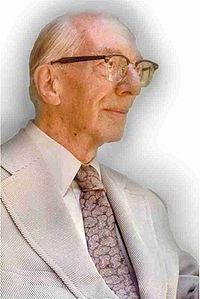A major source for Origen (c.184-c.253 or later) is Bishop Eusebius (c.260-c.340). However, the Ecclesiastical History is subject to criticism for a clerical agenda. Eusebius was a defender of Origen; his account is questioned in relation to accuracy. More generally, different assessments of Origen in modern scholar literature have caused puzzlement.
Born at Alexandria, Origen is ascribed a Christian father by Eusebius, one who was executed during a persecution by the Roman Emperor Septimius Severus in 202 CE. Origen allegedly had himself castrated by a doctor, in accordance with literal interpretation of a verse (19:12) in the Gospel of Matthew, which refers to “those who have made themselves eunuchs for the sake of the kingdom of heaven.” The verse was often interpreted metaphorically. Eusebius is much in question on this matter. “The story is hardly credible” (McGuckin 2004:6). Eusebius proffered this story as an explanation for the eventual prosecution of Origen by Bishop Demetrius. Origen “himself derides the literalist interpretation of the eunuch, saying it was something only an idiot would consider” (ibid).
According to Eusebius, Origen attended the circle of Ammonius Saccas, a Neoplatonist teacher in Alexandria. Little is known about Ammonius, who appears to have been a self-taught philosopher differing from the more conventional Platonist pedagogues. The circle of Ammonius eventually gained an important addition in the figure of Plotinus, who was some twenty years younger than Origen.
According to Porphyry (who is cited by Eusebius), “Origen lived as a Christian and thought as a Greek; he was always reading Plato and a whole lot of philosophers whom Porphyry lists” (Crouzel 1989:11). Modern scholarship resorted to a theme of two Origens, some commentators favouring the view that a pagan Origen was involved in the circle of Ammonius, as distinct from the Christian Origen. Other scholars have considered this theory erroneous. “There is every reason to believe that Origen acquired his superb education in philosophy from him [Ammonius]” (Trigg 1998:12). Cf. Edwards 1993.
Origen was a Christian “Neoplatonist” according to some versions, while awarding an ultimate deference to the Bible. “To the more advanced students he taught philosophy together with the subjects preparatory to it like geometry and arithmetic: he expounded the teaching of the different schools of philosophers, explained their writings, to the point where he himself acquired the reputation of being a great philosopher” (Crouzel 1989: 10).
By training Origen was a philologist, a scholar of the Greek language and its literature…. Within the span of three decades of concentrated literary activity, most of which was spent in Caesarea Maritima, he became one of the most prolific authors of his generation, and indeed of all antiquity. His surviving writings, though notoriously lacunose, attest to his wide-ranging examination of his church’s Scriptures. (Martens 2012:1-2)
According to Eusebius, Origen learned Hebrew; the assertion has frequently been rejected. Origen certainly possessed an extensive knowledge of Jewish traditions and rabbinical exegesis, apparently derived from his communications with Jewish rabbis. His Hexapla (Six Columns), extant in fragments, was a synopsis of differing versions of the Old Testament, including the Hebrew and the four main Greek versions. The author was concerned to establish an accurate text.
Origen defended Christian doctrines against pagan and Jewish objections. He attacked Jewish literalism with a strong invective. However, he “was not by nature a persecutor” and “actually defended the Jews against the abuse of pagans” (De Lange 1976:133ff).
He was pitted against the Graeco-Roman colonial mindset, a severe agent of persecution, executing his father and killing several of his own students. In his early years, Origen was frequently threatened by pagan mobs. In his last years, he composed the Contra Celsum, a refutation of the obscure second century Platonist Celsus. In his True Doctrine, Celsus had attacked Christianity from a conservative viewpoint, regarding that religion as a barbarian manifestation deriving from the Jews, who were allegedly inferior to Greeks.
Origen “differs from Clement [of Alexandria] in that he has not the least desire to claim the protection of a great philosophical name [meaning Plato] for some principle that is important to Christians. Yet, quite unconsciously, Origen is inwardly less critical of Platonism than Clement, and proposes a system that incorporates a larger proportion of Platonic assumptions than is apparent in Clement’s writings” (Chadwick 1967:101).
According to Eusebius, Origen was a pupil of Clement. Some scholars have strongly doubted this detail. Origen never quotes Clement by name; however, he does refer to teachings associated with the latter. “Origen never applies to the spiritual man the adjective gnostikos which Clement constantly uses” (Crouzel 1989:7). The conclusion is that Origen was more resistant to Gnostic teachings, which were proliferating in his time.
The relation of Origen to Gnosticism has been differently presented. His output is generally viewed as providing a foil to the trend of joining Gnostic sects. Origen was “the supreme theologian of free will, and the constant opponent of the Valentinian determinism” (Crouzel 1989:21). However, this was not a straightforward process of denial. “Of the Gnostics, Valentinus and his followers had the most profound influence on Origenism.” Moreover, “by a process involving both acceptance and rejection, he [Origen], in effect, appropriated and transformed Valentinianism” (Trigg 1998:8-9).
A wealthy Valentinian, namely Ambrose, became converted to Origen’s viewpoint, which is often described in terms of orthodoxy, despite some contradictions. Ambrose provided his new mentor with a team of stenographers and calligraphers, who acted as a publishing agency for Origen’s prolific Bible commentaries. Only fragments of those works have survived. Origen’s “allegorical” exegesis of the Bible has been the subject of dispute and criticism.
At this period, the Roman emperor Caracalla (rgd 212-17) assassinated his royal brother, an act meeting with opposition at Alexandria. The tyrant sacked that city in retaliation, and closed the schools. Origen retreated to Caesarea in Palestine, where he was invited by bishops to teach the scriptures. His status was that of a layman, not a cleric. This event caused the Alexandrian bishop Demetrius to protest, on the grounds that tradition prohibited laymen from preaching in the presence of bishops. Origen was recalled to Alexandria.
The situation of Origen illustrates a major problem: the episcopal status complex. His role as catechist was subordinate to Demetrius, whom he is said to have regarded as “a worldly, power-hungry prelate consumed with pride in his own self-importance” (Chadwick 1967:109). On a later visit to Palestine, Origen was ordained to the priesthood by two bishops. “With a good grace, or unwillingly giving way to their pressure? We cannot tell” (Crouzel 1989:20).
We do know that Demetrius reacted strongly, because the ordination had occurred outside his local jurisdiction. When Origen returned to Alexandria, a synod exiled him from the city. Demetrius went further, declaring that Origen was ejected from the priesthood. A synod at Rome is reported to have ratified this decision. Origen moved to Caesarea in Palestine, where he engaged in preaching, regarded as a priestly function. According to Eusebius, Demetrius condemned and made public the act of castration which Origen allegedly performed; this action on his part has been queried, being regarded by some analysts as malicious gossip. Demetrius accused Origen of unorthodox doctrine; this was probably the factor underlying episcopal aversion to Origen.
In Palestine, Origen attracted pupils like Gregory Thaumaturgus, initially a pagan, who refers to his mentor as a master of philosophy. The context does not here mean Greek philosophy, but “the moral and ascetic life, of Christian and pagan alike” (Crouzel 1989:26), a usage found among Christians of that period. The study of “philosophers of every school except the atheists” (ibid) was a preparation for the study of Biblical scripture. However, the school of Origen at Caesarea was not a centre of theology, because “the teaching leaves out almost everything peculiar to Christianity and only reproduces the doctrines that can be enunciated in philosophical terms” (Crouzel 1989:27). Origen’s curriculum has been described as a Christian version of Middle Platonism, intended for young pagans.
According to Bertrand Russell, the teachings of Origen, “as set forth in his work De Principiis [Treatise on First Principles], have much affinity to those of Plotinus – more, in fact, than is compatible with [Christian] orthodoxy” (History of Western Philosophy, 1946, p. 327).
The same treatise De Principiis has been described in terms of Christian Neoplatonism. More specifically, as the most systematic of the author’s writings, a work in which Origen “establishes his main doctrines, including that of the Holy Trinity (based upon standard Middle Platonic triadic emanation schemas); the pre-existence and fall of souls; multiple ages and transmigration of souls; and the eventual restoration of all souls to a state of dynamic perfection” (Internet Encyclopaedia of Philosophy).
Another interpretation ventures an anti-Platonist perspective. See also Who was Origen? The claim of Platonism in Origen “thrives on half-truths confronting his own statements and cardinal ideas, with ‘Platonism’ being mostly a flight of fancy in heads of unlearned authors (mainly bishops) of old times, whose views were upheld by modern theologians no less uninformed about what Plato really wrote” (Tzamalikos 2007:17). A related verdict reads:
Origen espoused a notion held in derision by many Platonists, which nevertheless was originated in the Hebraic tradition: survival as resurrection of the body…. he made resurrection the central theme of his thought. (Tzamalikos 2007:18)
At the end of his life, Origen was a victim of the persecution of Christians effectively launched by the Emperor Decius (rgd 249-251 CE), who enjoined that every subject of the Roman empire must sacrifice to the official gods. The defiant Origen survived horrific tortures.
He was posthumously condemned as a heretic by Christian polemicists and bishops in later centuries, and also by the repressive Christian emperor Justinian in 543. A decade later, in 553, the Fifth Ecumenical Council condemned doctrines found in De Principiis, including the pre-existence and transmigration of souls. That text does not survive intact in the original Greek, but in a Latin translation of Rufinus.
The ascetic characteristics of Origen were emphasised by Eusebius. Origen was favoured amongst fourth century Coptic Christian renunciates. The Desert Fathers have recently emerged from the shadow cast by orthodox interpretation. Figures like Antony the hermit are revealed by scholarship to have fostered ideas and beliefs that were rejected by clericalism. Dogmatic Christian bishops were eventually victorious in controlling and modifying the monastic movement.
Bibliography:
Behr, John, trans., Origen: On First Principles – A Reader’s Edition (Oxford University Press, 2020).
Butterworth, G. W., ed., Koetschau trans., Origen: On First Principles (London: SPCK, 1936).
Chadwick, Henry, trans., Contra Celsum (Cambridge University Press, 1953).
——–The Early Church (Harmondsworth: Penguin, 1967).
Clark, Elizabeth A., The Origenist Controversy (Princeton University Press, 1992).
Crouzel, Henri, Origen (Edinburgh: T. and T. Clark, 1989).
De Lange, Nicholas, Origen and the Jews (Cambridge University Press, 1976).
Edwards, Mark J., “Ammonius: Teacher of Origen,” Journal of Ecclesiastical History (1993) 44:169-181.
Eusebius, Ecclesiastical History, trans. Kirsopp Lake and J. Oulton, (2 vols, London: Heinemann, 1926-32).
Martens, Peter W., Origen and Scripture: The Contours of the Exegetical Life (Oxford University Press, 2012).
McGuckin, John Anthony, ed., The Westminster Handbook to Origen (Westminster John Knox Press, 2004).
Trigg, Joseph Wilson, Origen: The Bible and Philosophy in the Third Century Church (Atlanta: John Knox Press, 1983).
——–Origen (London: Routledge, 1998).
Tzamalikos, Panayiotis, Origen: Philosophy of History and Eschatology (Leiden: Brill, 2007).
Kevin R. D. Shepherd
January 26th 2012, modified October 2021
ENTRY no. 45
Copyright © 2021 Kevin R. D. Shepherd. All Rights Reserved.



